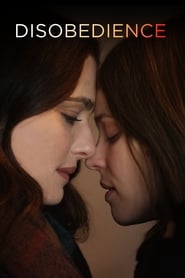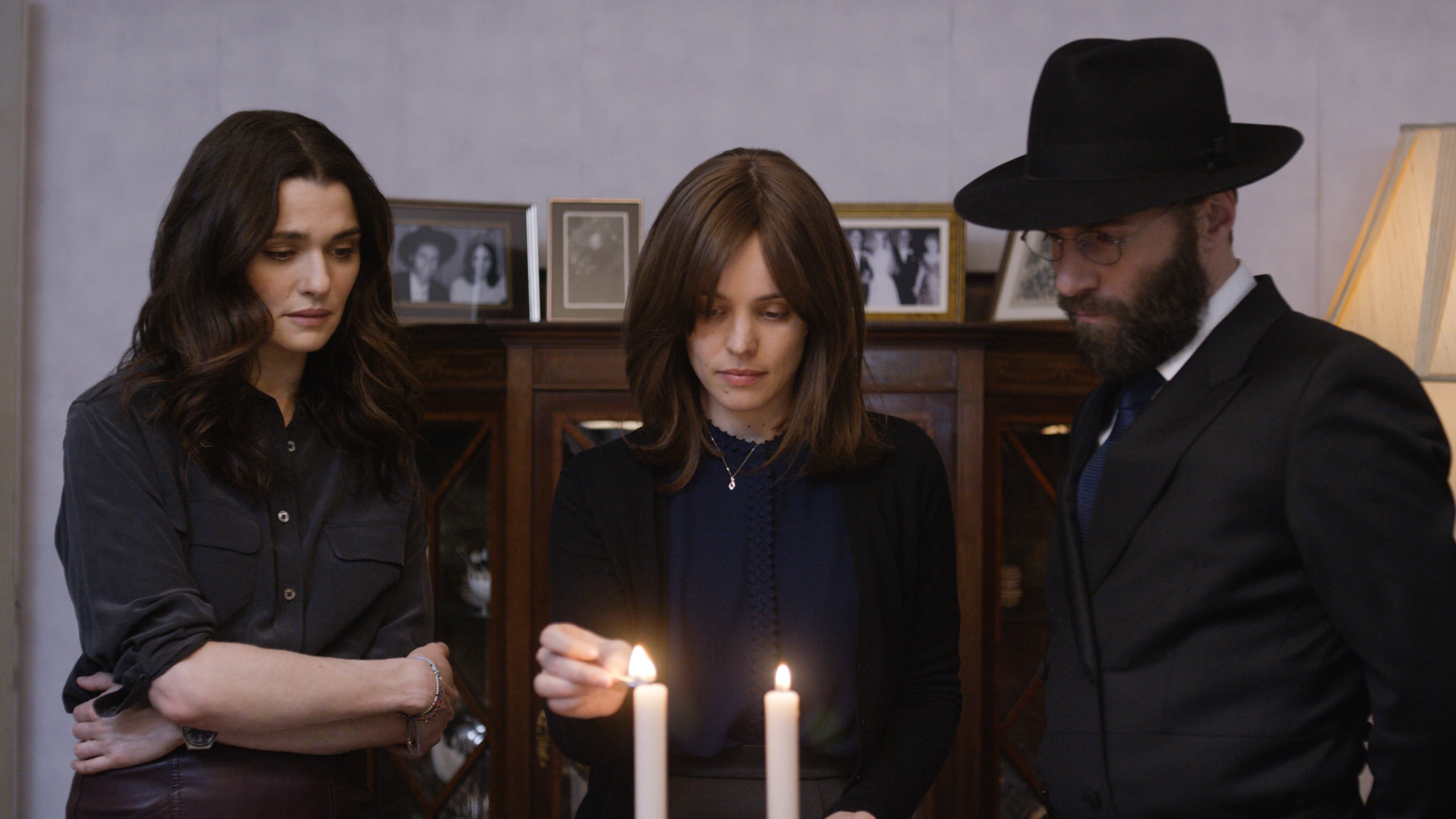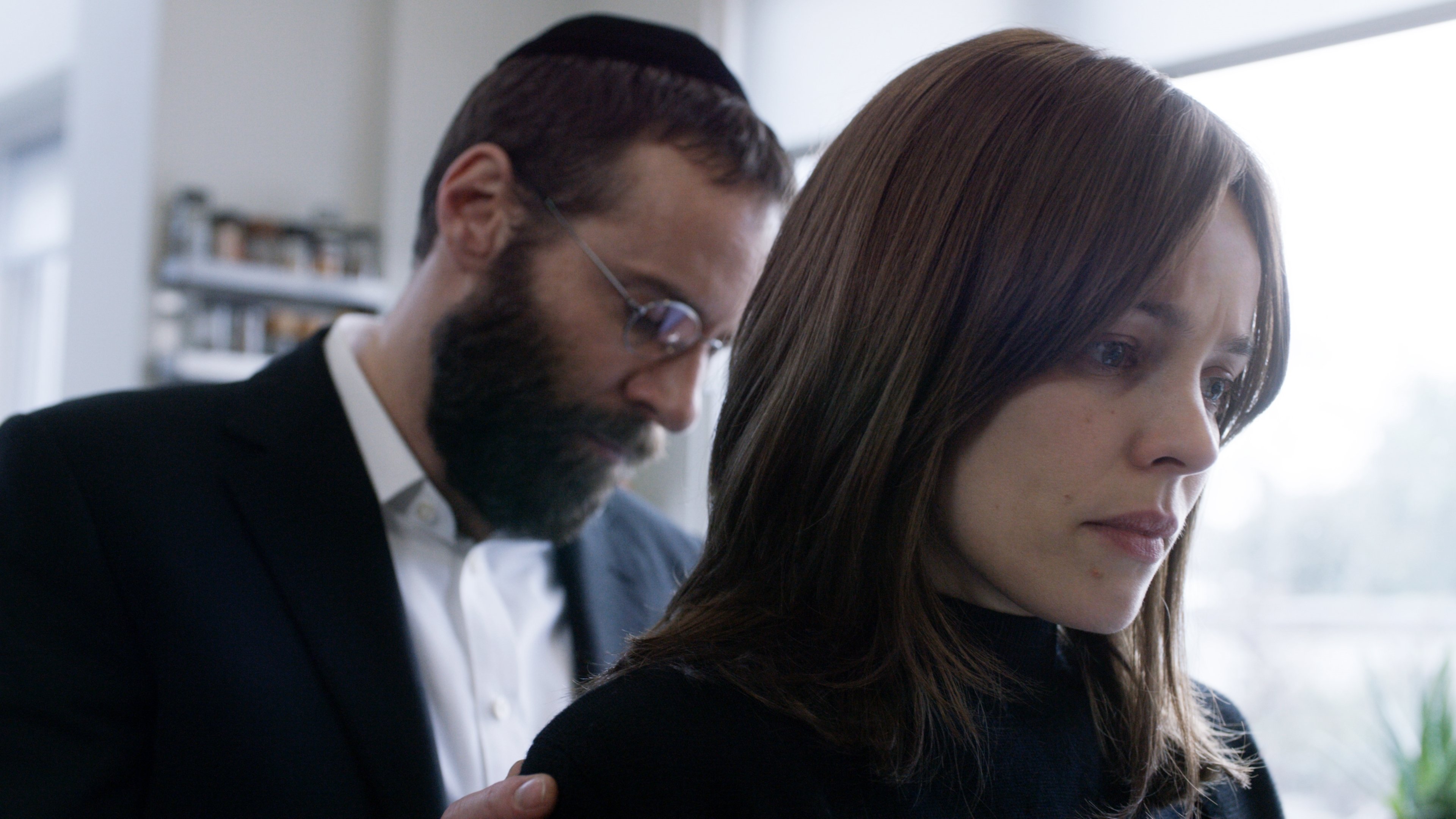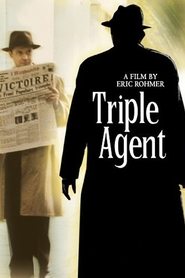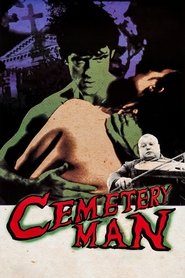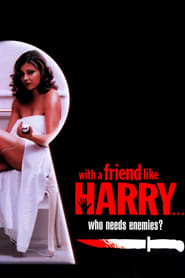
Video Sources 0 Views
Synopsis
Watch: Disobedience 2017 123movies, Full Movie Online – From a screenplay by Sebastián Lelio and Rebecca Lenkiewicz, the film follows a woman as she returns to her Orthodox Jewish community that shunned her decades earlier for an attraction to a female childhood friend. Once back, their passions reignite as they explore the boundaries of faith and sexuality. Based on Naomi Alderman’s book, the film stars Rachel Weisz, Rachel McAdams and Alessandro Nivola..
Plot: A woman learns about the death of her Orthodox Jewish father, a rabbi. She returns home and has romantic feelings rekindled for her best childhood friend, who is now married to her cousin.
Smart Tags: #lesbian_relationship #lesbian #lesbian_sex #female_nudity #jewish_community #infidelity #funeral #nudity #lesbian_love #lesbian_affair #wife_has_an_affair_with_another_woman #orthodox_jewish_community #woman_in_love_with_female_friend #jewish_tradition #female_star_appears_nude #female_in_a_shower #scandal #cheating_wife #orthodox_jew #london_england #breasts
Find Alternative – Disobedience 2017, Streaming Links:
123movies | FMmovies | Putlocker | GoMovies | SolarMovie | Soap2day
Ratings:
Reviews:
**_A well-told love story, set against a background of religious orthodoxy_**> _An important point to make from the outset is that Jewish law does_ not _teach that it is forbidden to be a homosexual. On the contrary, Jewish law is concerned not with the source of a person’s erotic urges nor with inner feelings, but with acts. The Torah forbids the homosexual_ act_, known as_ mishkav zakhar_, but has nothing to say about homosexuality as a state of being or a personal inclination._
> _In other words, traditionally, a person with a homosexual inclination can be an entirely observant Jew a__s long as he or she does not act out that inclination._
>
[…]> _Lesbianism is never mentioned in the Torah. One talmudic passage refers to homosexual acts between women: “R. Huna taught, Women who have sex one with the other are forbidden to marry a Kohen.” The_ Halakhah _rejects Rav Huna’s opinion and allows a lesbian to marry a Kohen. However, Maimonides ruled that lesbianism is still prohibited and should be punished by flagellation. The prohibition is not as stringent as that against male homosexuality because the Torah does not explicitly prohibit lesbianism, and because lesbianism does not involve the spilling of seed._
– Rabbi Michael Gold; _Does God Belong in the Bedroom?_ (1991)
Depicting the problems that can arise when deeply held spiritual beliefs clash with notions of personal freedom, _Disobedience_ is the story of a forbidden love given a second chance. Based on Naomi Alderman’s 2006 novel, written for the screen by Rebecca Lenkiewicz (_Ida_) and Sebastián Lelio, and directed by Lelio, the film covers some of the same thematic territory as Lelio’s previous features; _Gloria_ (2013) deals with a 58-year-old divorcée trying to re-enter the dating scene by frequenting singles-bars, and the Oscar-winning _Una mujer fantástica_ (2017) looks at a transgender waitress trying to come to terms with the death of her boyfriend, whilst also navigating a prejudiced society. In _Disobedience_, Lelio turns his attention towards a lesbian relationship within London’s relatively insular Modern Orthodox Jewish community. What all three films have in common is the centrality of a complex and strong woman facing up to (almost exclusively patriarchal) societal hostility. Kind of like a cross between Todd Haynes’s _Carol_ (2015) and Daniel Kokotajlo’s _Apostasy_ (2017), _Disobedience_ eschews melodrama, and is uninterested in presenting a binary story where faith is the Big Bad. Although it is certainly critical of the strictures that can result from a rigid application of _Halacha_ [Jewish religious laws] and/or a literal interpretation of the _Taryag Mitzvot_ [613 Commandments], the community itself is depicted respectfully, with the most representative Jewish character arguably the most sympathetic figure in the film. _Disobedience_ does feature a very graphic lesbian sex scene, but it’s one of the most thematically justified, least exploitative sex scenes I can remember, crystallising many of Lelio’s thematic concerns. Although things can be far too on the nose from time to time, Lelio’s subtle and non-intrusive direction more than compensates for that, and overall, this is a fine film, both thought-provoking and moving.
The story opens in a synagogue in London as Krushka (the great Anton Lesser), the local Rav, (similar to a rabbi, except an _Halachic_ expert) delivers a sermon explaining that angels and demons are locked into their destinies, with only humanity “_free to choose_”. This freedom, however, is both a privilege and a great burden, as it affords humanity the opportunity to disobey the edicts of _HaShem_ [lit. “The Name”; used to refer to God when discussing Him outside scripture]. However, before completing his sermon, Krushka keels over and dies. Meanwhile, in New York, Ronit (Rachel Weisz), his estranged and non-practising daughter gets word of his death. After getting drunk and having anonymous sex with a man in a toilet, Ronit heads back to England. At the home of her childhood friend, Dovid Kuperman (an extraordinary Alessandro Nivola), Krushka’s understudy, Ronit quickly learns the community is not especially pleased to see her, as the shadow under which she left has not dissipated. Despite this, and although he wasn’t expecting her, Dovid is happy to let Ronit stay with him and his wife, who, Ronit is stunned to learn, is her former best friend, Esti (Rachel McAdams). The film then plays out over the next few days, as the community prepares for Krushka’s _levaya_ [funeral], as it becomes apparent that Ronit and Esti were once more than friends, which may, or may not, have had something to do with Ronit’s departure and her estrangement from her father. However, the more time they spend in one another’s company, the more their once-held passion for one another bubbles to the surface.
Thematically, _Disobedience_ is far more concerned with the clash of views that results from Ronit’s return than it is with condemning the beliefs of the community _per se_. When she first arrives at Dovid’s house, she instinctively reaches out to hug him, forgetting about _negiah_ [the forbidding of physical contact between men and women not related by blood, or married], and he immediately, although not unkindly, recoils. This tells us both how long she has been away, and how thoroughly she has rejected the doctrines of the faith. Later, there is an exceptionally awkward (but very funny) _Shabbat_ [Jewish day of rest] meal, where Ronit seems to take great delight in being as outrageous as possible, riling up the assembled guests with her progressive worldview. In a discussion about the role of women in society, for example, she points out that every time a woman gets married and takes her husband’s surname, a part of that woman’s history is erased. This kind of ideological conflict, however, is also found _within_ the characters themselves. Esti, for example, is torn between her desire for Ronit on the one hand, and her commitment to Dovid and her belief in their faith on the other. For her part, Ronit too internalises discord; although she has been estranged from him for many years, she is genuinely hurt to learn just how completely Krushka had divorced himself of her memory, seen most clearly when his obituary refers to him as “_sadly childless_”.
Tellingly, during the _Shabbat_ dinner, Dovid tries to play peacekeeper, whilst a couple of cutaways to Esti show her smiling to herself as Ronit burrows under the skin of those present. This kind of delicate touch on Lelio’s part can be seen throughout the film, with numerous wordless gestures allowing the actors to convey backstory in lieu of exposition. For example, after Ronit arrives, although Dovid recoils when she tries to hug him, and although when she tries to light up a cigarette in his kitchen, he asks her to smoke in the garden, he accompanies her outside, shielding the flame from the wind in a gesture both kind and intimate. Another excellent example is found later that night as Dovid and Esti prepare for bed, and Esti gently and playfully strokes his beard, suggesting her genuine affection for him.
On paper, the story might lend itself to a condemnation of the kind of social suffocation and emotional repression that can result from fundamentalism. Instead, however, the film spends time building a respectful, if not idealised, picture of the community’s beliefs and practices. Although no-one is especially happy that Ronit is back, they are never openly hostile, the way Hasidic Jews, for example, might be. A key part of this respect is Dovid himself, played by Nivola (in an Oscar-worthy career-best performance) as an inherently decent and honourable man; when Ronit returns, he is the only one to extend her a genuine welcome. In a less nuanced film, Dovid would be a fire-and-brimstone obstacle to Ronit and Esti’s happiness, a Roger Chillingworth-type personification of traditionalism and rigidity. Instead he is presented as someone who, like Esti, faces a difficult choice – that between his communal position and his faith on the one hand, and his genuine love of Esti and affection for Ronit on the other, his lifelong devotion to the _Tanakh_ [Hebrew Bible] conflicting with the modern day progressive sensibilities that come from living in a metropolis. Indeed, perhaps Dovid’s most salient characteristic is conflict – when he tries to lay down the law to Esti regarding her conduct, his heart never seems in it; when he expresses disgust at her tryst with Ronit, he almost seems embarrassed to be reacting the way he is. This conflict is manifested aesthetically in a scene where Dovid is addressing the synagogue. Lelio films the scene in such a tight close-up, that every time Nivola moves even slightly off his mark, he goes out of focus. It’s a brilliant example of content generating form, and is typical of Lelio’s directorial lightness of touch.
However, for all that, the film never lets you forget that this is a community of _negiah_, where married women must wear a _sheitel_ [wig] in public, and where the genders are strictly divided at religious services. As Ronit and Esti discuss their sexuality, Esti points out that she and Dovid have sex every Friday night, “_as is expected_”, and that the reason she was married to Dovid in the first place was that Krushka hoped “_marriage would cure_” her, a concept not a million miles away from homosexual conversion therapy. In this sense, although respectful of the community, even depicting some of the communal benefits of such a tight-knit group, the film does challenge some of the tenets of their belief system, particularly its rigid traditionalism and myopic sexism, both of which feel increasingly out of place in the early 21st-century. In this, _Disobedience_ fits very much into Lelio’s _oeuvre_, with all three of his films dealing with repressive _milieus_ placing restrictions on women.
Obviously, a major theme throughout is sexuality. Much has been made of the sex scene between Ronit and Esti, with some critics accusing it of being little more than titillation at best, a graphic example of the male gaze at worst. However, this reading is to completely miss the point of the scene in relation to the narrative as a whole. There are actually two sex scenes in the film; one between Ronit and Esti, and the other between Esti and Dovid. And although they couldn’t be more different, they also couldn’t exist without one another, as the abandonment, lust, and sense of pressure being released when Esti is with Ronit contrasts sharply with the detached, formulaic, and passionless scene with Dovid; the two scenes explicitly comment on one another, each hinting at the meaning to be found in its counterpart. In this, they recall the four sex scenes in David Cronenberg’s _A History of Violence_ (2005) and Abdellatif Kechiche’s _La Vie d’Adèle – Chapitres 1 & 2_ (2013), two sets of two scenes which, again, comment upon and contextualise one another. The scene between Ronit and Esti is the physical manifestation of the characters’ long-repressed desire for one another, a release of the yearning that has been building up for years. It’s a wholly justified narrative moment, and a completely necessary beat for the two characters. It’s not an aside or a piece of voyeuristic male fantasy, it’s the centre of the whole film. Together, the two scenes represent Esti’s binary choice – an unbridled and sexually fulfilling, but unstable relationship with Ronit, or a dutiful and dull, but respectful and secure relationship with Dovid.
If I had one major criticism, it would be that although Lelio’s direction is extremely subtle, some of his and Lenkiewicz’s writing choices are spectacularly on the nose. The opening sermon is a good example – a religious diatribe whose subject is mankind’s freedom to choose, the concomitant ability to disobey, and the notion that freedom is impossible without sacrifice, in a film about these very same issues. Another example is that Dovid and his _yeshiva_ students are discussing the one book of the _Tanakh_ dealing with sexuality rather than spirituality, the _Song of Songs_, whilst Esti’s secondary school students are studying adultery in _Othello_. The worst example of this, however, is found when Ronit and Esti go to Krushka’s house and Ronit turns on the radio, which just so happens to be playing The Cure’s “Lovesong”, a song which perfectly encapsulates their situation (“_Whenever I’m alone with you/You make me feel like I am home again_”). It’s not exactly subtle. I’m also not a massive fan of Matthew Herbert’s score, with its jaunty use of woodwinds cutting against the ominous tone of the narrative.
These two issues aside though, this is an excellently crafted film. Once again examining female desire, issues of patriarchal oppression, and profound self-doubt, Lelio delivers a mature and considered meditation on the conflict between faith and sexuality. Eschewing the kinds of black and white criticism of secular isolationism as seen in films such as Sidney Lumet’s _A Stranger Among Us_ (1992) or Boaz Yakin’s _A Price Above Rubies_ (1998), Lelio respects the _milieu_ too much to cast it as the villain. Instead, there is an elegance to the way in which he depicts it. Equal parts sensual and spiritual, the lethargic pace and absence of any narrative fireworks will probably alienate some, especially those expecting a pseudo-porn movie, but for the rest of us, this is thoughtful and provocative cinema in the best sense of the term.
Review By: Stephen Campbell
**Except from a conversation about the movie:**“I think _Disobedience_ could get some Oscar attention. It’s depressing Jewish lesbians, so chances are pretty high. It was actually a pretty decent movie. Really didn’t overplay the onscreen sex, which was good, but I do wish there were queer movies which were more middle of the spectrum. Seems like 99% of the time you either get hokey deliberate trash “””comedies”””” made on 47c budgets like _Yeti: A Love Story_, or super serious (and almost always super grim) art-y dramas like _Moonlight_ that are very well made but also make you very upset…
Don’t get me wrong, I’m very thankful for both of those types of movies, but where’s like… _Die Hard_ where Bruce Willis is a shirtlifter?”
**P.S. I’m buying this soundtrack.**
**_**Final rating:★★★ – I liked it. Would personally recommend you give it a go.**_**
Review By: Gimly
Disobedience (2018)
Yes, there was another film that came out during Avengers: Infinity War release week. I was immediately excited for Disobedience as soon as I heard about it. I mean how could you not be? Rachel Weisz and Rachel McAdams (who I am infatuated with) in a film about a forbidden romance? I was so in. I did see Sebastián Lelio’s A Fantastic Woman earlier this year, so I was really pleasantly surprised to hear he had another project out so soon. I can draw parallels between the two films and while Disobedience is not perfect and has lapses its well acted and has an interesting look at a religious community being scarred by a “scandalous” affair.The film is about a woman who returns to a very strict Orthodox Jewish community when her father dies. While there she sees her former lover who is now married. The problem is the fact that people in the Jewish community do not know about the relationship that has occured and also because a lesbian affair is frowned upon in the community. Both women also must deal with harboring the feelings that they have for each other, while attempting to maintain their standing in the Jewish community.
The first thing that’s instantly noticeable about the film is its depth into an Orthodox Jewish world. The films backdrop is its strict nature and how a lesbian romance must be hidden from the community. Rachel Weisz and Rachel McAdams are great in this as expected, and have great chemistry. Their intimate scenes (which are very very intimate) are believable and are a strong point in selling the romance. I always knew McAdams was a talent since she had a good showing on season 2 of True Detective.
The film reminded me of A Fantastic Woman in a way because in that film there is a struggle to accept a transgender person, although the implications in that film are more hostile. I also couldn’t help but compare this film to Carol (which is one of the very best films of the decade). Its nowhere near the levels of Carol but does a decent job for what the film is. There are lapses where the film seems slow and it suffers from its best moments being purely when Weisz and McAdams share the screen. Its still a worthy watch, just don’t expect anything spectacular.
6/10
Review By: rockman182
A trip to the past and the future
SummarySensitive chronicle of a complex reunion of a photographer with a young love, as part of her return to a London Jewish Orthodox community where both had grown up. An approach with characters full of nuances, far from the Manichaeism of the Unorthodox series and with great performances, especially that of Rachel McAdams.
Review
Ronit (Rachel Weisz), a photographer based in New York, must return to London when she learns of the death of her father, a rabbi of an Orthodox community in that city, where she grew up. The trip will involve the reunion with Esti (Rachel McAdams) and her husband Dovid (Alessandro Nivola) and with feelings that she had had to leave behind.
The movie posters unequivocally announce that Ronit’s past love is Esti. In any case, the way in which Sebastián Lelio’s film reveals this link is exemplary, posed with a certain tension, as if for a viewer who does not know it. And yet, it retains a certain element of surprise when it ends up manifesting.
And the surprise is given by the dynamics of the bond that is reborn between the two. Ronit had to leave the community while Esti adapted to it by marrying their friend. It is also a key moment in the life of Dovid, a favorite disciple of the late Rabbi (Ronit’s father) and his sure successor.
With English phlegm, the family and community environment will make Ronit feel how she feels about her past decisions and her present, while she goes through a duel with contradictions and a loving reunion at the same time. But it is Esti who may begin to walk a path more in line with her feelings and her desire, a journey that can take her from resignation to freedom.
Lelio admirably unwinds the ball of this love triangle, of this drama of three characters at a crossroads. The scenes of sexual intimacy between them achieve the perfect balance between modesty and a daring and intense sensuality at times epiphanic. On the other hand, although it is an Orthodox community, the intimacy of the marriage allows us to see that we are not facing the extremes raised in the Unorthodox miniseries. It is precisely the character of Dovid who also contributes a complexity that distances the story and the film from the Manichaeism of good and bad posed by that series.
The performance of the leading trio is exemplary, but it is Rachel McAdams who takes the laurels marking each of the stages of the evolution of her introverted character, in the same way that Lelio is modifying the tone of his story to the rhythm of the emotions of his characters.
Review By: danybur
Other Information:
Original Title Disobedience
Release Date 2017-09-10
Release Year 2017
Original Language en
Runtime 1 hr 54 min (114 min)
Budget 6000000
Revenue 0
Status Released
Rated R
Genre Drama, Romance
Director Sebastián Lelio
Writer Sebastián Lelio, Rebecca Lenkiewicz, Naomi Alderman
Actors Rachel Weisz, Rachel McAdams, Alessandro Nivola
Country Ireland, United Kingdom, United States
Awards 4 wins & 27 nominations
Production Company N/A
Website N/A
Technical Information:
Sound Mix N/A
Aspect Ratio 2.35 : 1
Camera Red Epic Dragon, Zeiss Master Prime Lenses
Laboratory N/A
Film Length N/A
Negative Format N/A
Cinematographic Process N/A
Printed Film Format N/A
Original title Disobedience
TMDb Rating 6.957 973 votes
Director
Director



